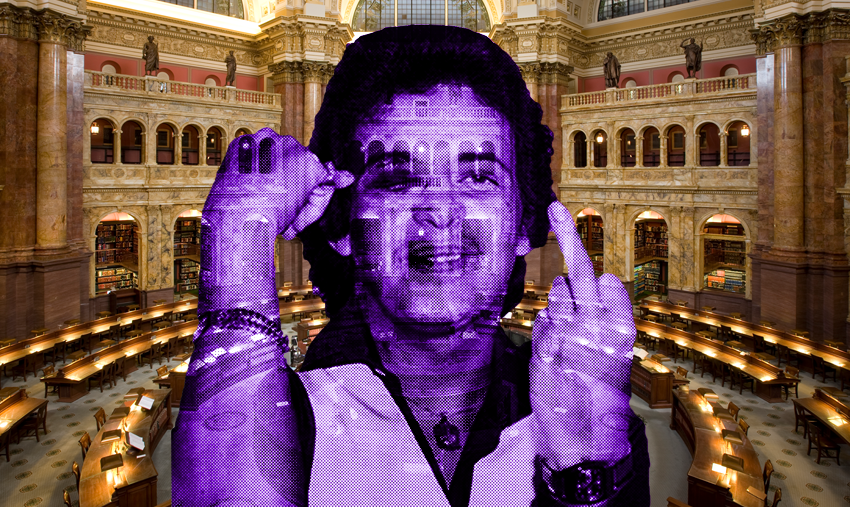‘Yo soy el cantante’
Library of Congress enshrines a salsa legend

The new Rock and Roll Hall of Fame inductees may be a snoozefest, but thankfully they’re not the only compilers of musical significance out there.
Last week, the Library of Congress announced the 25 pieces it’s adding to the National Recording Registry–for recordings with “cultural, historical or aesthetic importance in the nation’s recorded sound heritage”–and the list includes plenty of bangers: “Dancing Queen” by ABBA, “Don’t Worry Be Happy” by Bobby McFerrin, Bill Withers’s “Ain’t No Sunshine,” and the entirety of Green Day’s turning-30 classic, Dookie. But today we focus on the 1978 salsa classic “El Cantante,” performed by La Voz, aka El Cantante de los Cantantes: Hector Lavoe.
Written by a young Rubén Blades, the 10-minute epic reflects on the ups and downs of life as a famous salsero. Despite his fame and fortune, Lavoe sings, he is just a regular guy with risas y penas (smiles and pains)–not that anyone ever asks him how he’s doing. And that’s just fine: Yo soy el cantante, y mi negocio es cantar, he sings. “I am the singer; my business is to sing.”
Born in 1946 in Ponce, on Puerto Rico’s southern coast, the precocious Lavoe sang with his first band at age 14. Three years later, he emigrated to New York to pursue his craft with the “big boys” in the city’s burgeoning salsa scene. He started out working odd (non-musical) jobs, spending his free time in the scene, where he eventually met New York native salsa legend Wille Colón. Eventually Colón invited Lavoe to front his band, and together they rose to fame–not just in New York, but across Latin America and Europe as well.
Lavoe went solo in 1975, releasing hit after hit. “El Cantante” appeared on his album Comedia, released at the peak of his success in 1978. He also sang with the Fania All-Stars–not just a clever name, as their roster also included Celia Cruz, Tito Puente, and other salsa giants.
But risas y penas would continue to be the theme of his life. Despite his success, he struggled—with drug addiction, marital problems, depression (exacerbated by the accidental death in 1987 of his 17-year-old son), music industry difficulties, and a 1988 suicide attempt that left him, in the words of the L.A. Times, “physically and spiritually shattered until his death from AIDS complications in 1993.” (He had contracted the disease from his drug use.) In the days following his death, thousands of Puerto Ricans filled the streets, blasting his music and marching in his honor.
In 2023, Lavoe was ranked #73 on Rolling Stone’s list of the all-time best singers, calling him “salsa’s own rock star.” He was “blessed with a wicked sense of humor and a chocolaty voice,” the magazine wrote, “able to manipulate at will the clave dynamics that make Afro-Caribbean music swing with reckless abandon.” More than a singer, he was a storyteller with a soulful voice with emotional depth, a charismatic stage presence, and an authentic style–with all the demons that sometimes come along with that.
Now if you’ll excuse us, we need to blast “El Cantante.” (And maybe even watch the not-so-great 2006 movie of the same name, starring Marc Anthony and J.Lo) ¡Viva Hector!
